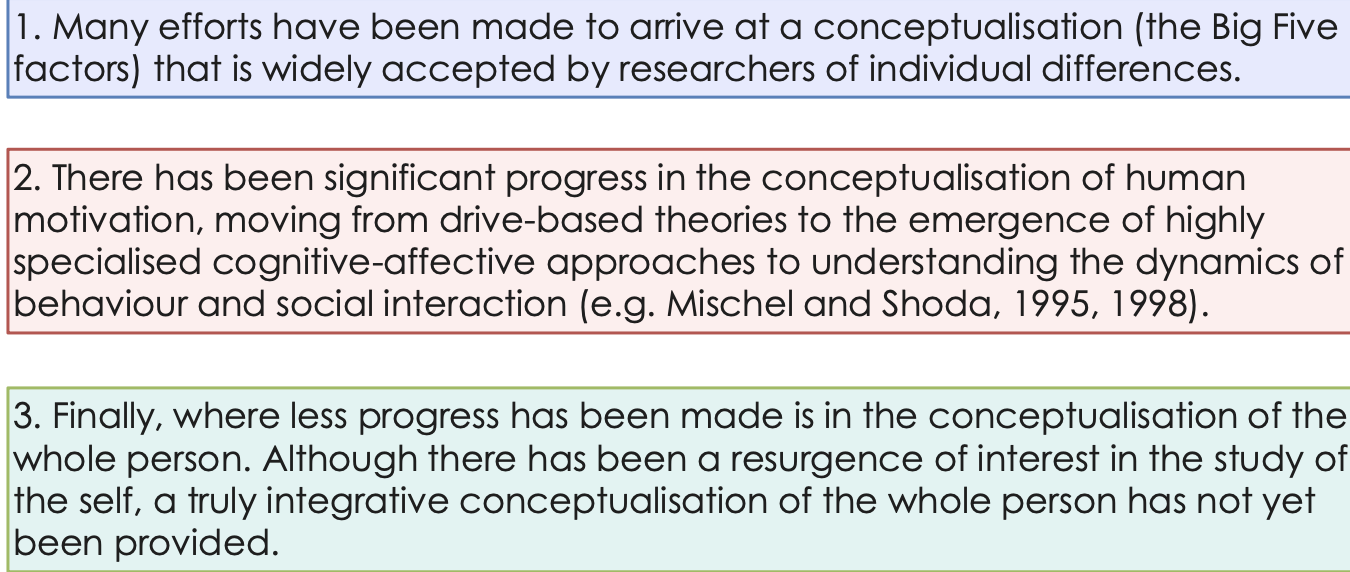1.1. CHAP 1 Theoretical Perspectives & Theories
1/9
Earn XP
Description and Tags
Theoretical Perspectives & Theories
Name | Mastery | Learn | Test | Matching | Spaced |
|---|
No study sessions yet.
10 Terms
Historical Development Highlights
Early 20th century: Mental tests (immigration, job selection).
Formalization in 1930s:
Allport (1937)
Murray (1938)
Stagner (1937)
Psychoanalytic Perspective
Freud (Classical): Unconscious drives, id/ego/superego.
Jung (Analytical): Collective unconscious, archetypes.
Humanistic Perspective
Rogers (Person-Centered): Self-concept, unconditional positive regard.
Maslow (Hierarchy): Self-actualization at top of needs pyramid.
Trait Perspective
Allport: Cardinal, central, secondary traits.
Factor Analytic Theories:
Cattell: 16 Personality Factors.
Eysenck: PEN model (Psychoticism, Extraversion, Neuroticism).
Costa & McCrae: Big Five (OCEAN: Openness, Conscientiousness, Extraversion, Agreeableness, Neuroticism).
Cognitive-Social Learning Perspective
Mischel: Behavior influenced by situations → delayed gratification (Marshmallow test).
Bandura: Reciprocal determinism, self-efficacy.
Kelly: Personal construct theory (individual differences in how people interpret the world).
Biological approach (Early studies)
Constitutional Typologies
Hippocrates
Galen
Kretschmer's somatic theory
Sheldon's typology
Hormonal
Cashew and Sulman
Phenomenology
Gall
Biological Perspective
Focus: Genetics, brain structure, hormones, evolution, epigenetics.
Critiques: Reductionist, ethical concerns.
Reductionism
Biological approach sometimes oversimplifies personality by attributing it mainly to biology without considering the complex interplay of social and environmental factors.
Ethical Implications
Discussions about genetics and personality can raise ethical concerns, especially when linked to behaviors or potential predispositions.
Sum up of agreements related to personality
